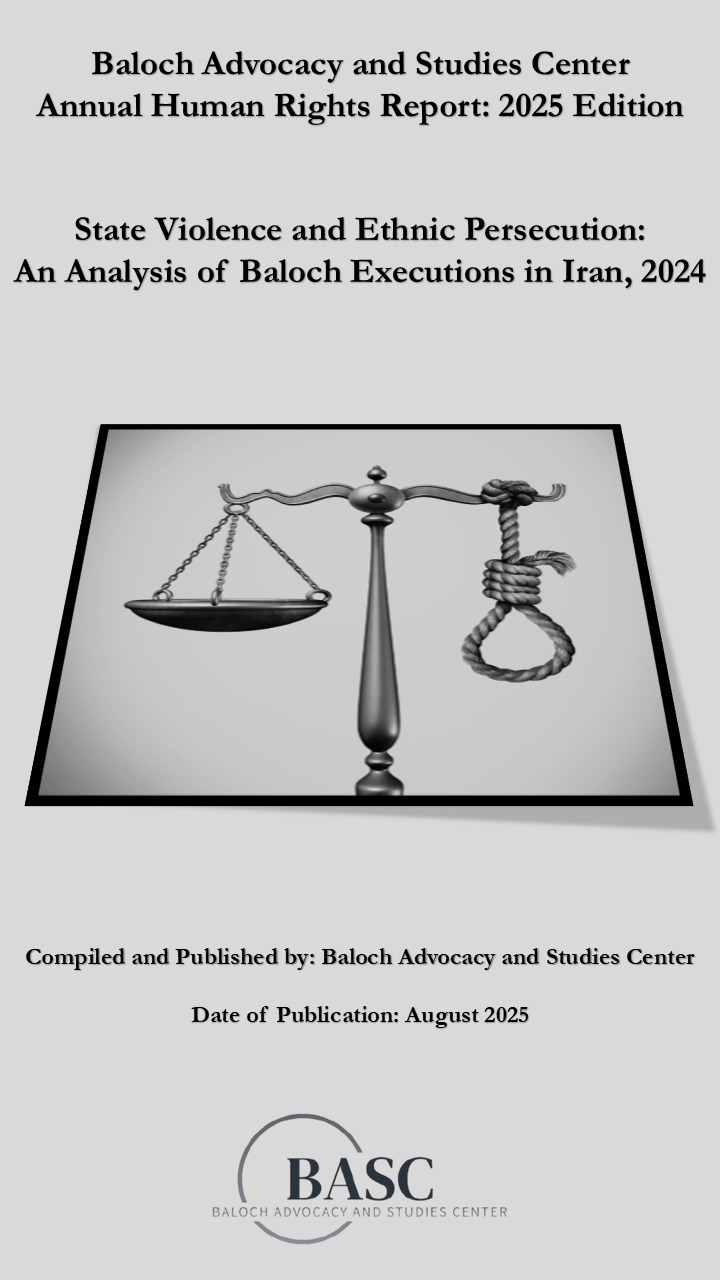
Read the full report:
London, 9 August 2025 — The Baloch Advocacy and Study Center (BASC) has released its second annual report on the extrajudicial executions of Baloch prisoners in Iran during 2024, uncovering systemic discrimination, flawed judicial processes, and entrenched socioeconomic marginalisation in Sistan and Baluchestan province.
According to the report, 70% of those executed were breadwinning husbands and fathers, leaving hundreds of dependents—children, women, and elderly family members—without financial and emotional support. Nearly 80% faced drug-related charges, a trend BASC links to chronic poverty and state policies that leave cross-border smuggling as one of the few viable livelihoods in a province where unemployment rates are 70% higher than the national average.
The report identifies a major spike in executions in December 2024, attributed to government crackdowns following protests in Baloch regions and heightened activity by Baloch armed resistance groups. The study also dissects execution trends by marital status, charges, age group, prison location, and month.
BASC is calling for urgent international intervention to halt the targeting of marginalised minorities in Iran’s death penalty system.
“The international community must no longer turn a blind eye to this issue,” said Abdollah Aref, BASC’s Head of Research (Iran Desk). “These are systematic executions of Baloch people. It is not only a human rights crisis—it’s a generational catastrophe.”
BASC calls on:
The Islamic Republic of Iran to impose an immediate moratorium on executions—particularly for non-violent drug offences—ensure fair trials, provide independent legal representation and interpreters, and end the targeting of ethnic and religious minorities.
The United Nations to intensify monitoring and reporting on Iran’s death penalty practices and appoint an independent fact-finding mission focusing on executions of ethnic minorities.
International donors and development agencies invest in education, healthcare, and sustainable livelihoods in Sistan and Baluchestan to dismantle structural poverty and criminalisation.
Civil society organisations amplify the voices of affected families, document abuses, and advocate for justice mechanisms that centre victims and survivors.
